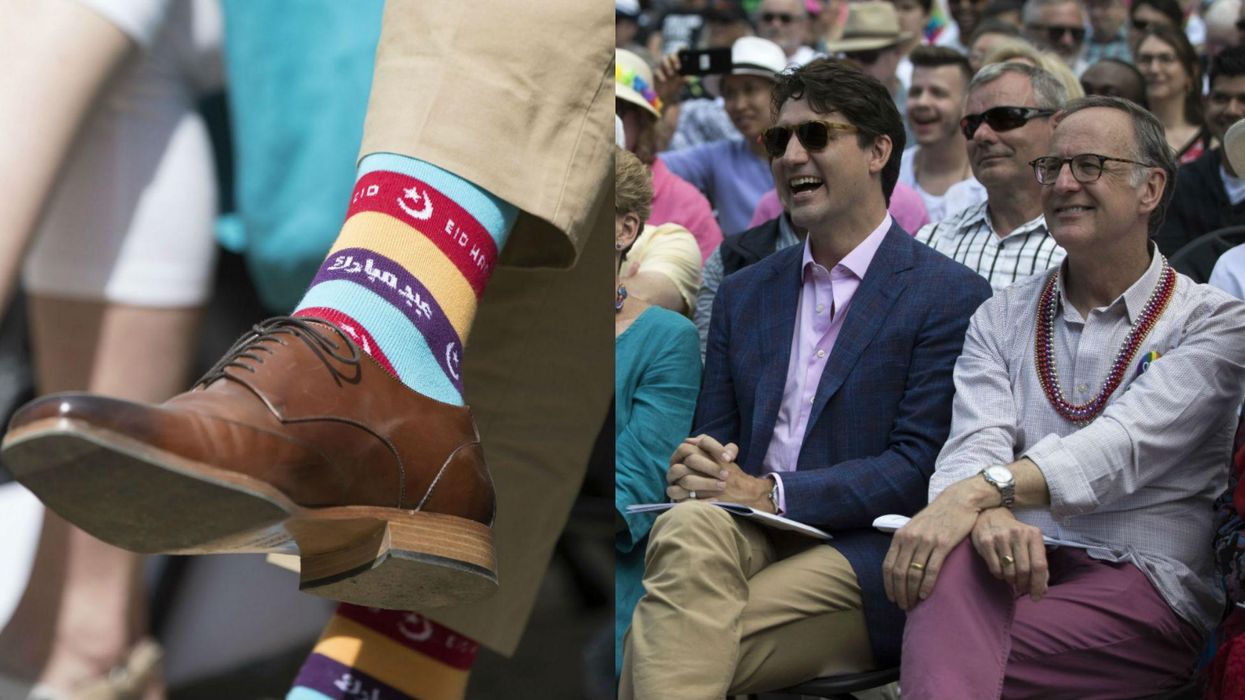Viral
Joe Vesey-Byrne
Aug 16, 2020

Picture:
Rex Features (composite)
A study by Harvard University has found an interesting marker of success.
Socks!
The stereotype of the outlandishly dressed entrepreneur, leader, or successful person may be based in some truth.
Researchers at Harvard have found that successful people often display non-conformist tendencies, such as those in the world of serious dealings choosing to wear brightly coloured socks.
The study, entitled 'The Red Sneakers Effect', looked at how people reacted to non-conformity, and how it shaped their perceptions of the non-conformists, such as someone who wore red sneakers in a professional setting.
It concluded that often the non-conformity was interpreted as conspicuous consumption, and an assumption of high status and confidence.
Our research examines how third-party observers interpret such violations of conventional norms in terms of status and competence attributions. We demonstrate that nonconforming behaviour, as a costly and visible signal, can operate similarly to conspicuous consumption and, as compared to conforming behaviour, lead to inferences of enhanced status and competence in the eyes of others.
By contrast, low status individuals in an organisation were more likely to strictly adhere to dress codes.
Gym chic
The theory was tested in high-end and boutique stores.
109 female adults in downtown Milan were recruited. 52 of these were shop assistants in boutique stores selling brands such as Armani, Burberry, Christian Dior, La Perla, Les Copains, and Valentino). The remaining 57 participants were recruited at Milan's central station, with little experience of working in boutique stores.
The participants were asked to describe their perception of a person based on a written scenario of a woman entering a high end boutique store. In one scenario the fictitious woman was described as 'wearing gym clothes and jacket'. They were asked a serious of questions in order to determine if they believed the woman was a luxury or VIP client.
The results found that both shop assistants and the other women assigned a high status to the non-conforming woman wearing gym clothes. This trend was stronger with the shop assistants who were more accustom to the boutique sales environment.
Business time socks
In a second study for the paper, the researchers looked at non-conformist dress in a professional setting.
For this, 159 participants were recruited from Harvard University in Boston. Once again they were given descriptions of the dress and biography of a fictitious person, in this case a professor at a university.
Once again, the more dressed down a person was, the higher their status was considered to be. In the professional setting the professors wearing t-shirts rather than suits were also perceived to have a greater level of competence.
The 'schlub chic' of hoodies and T-shirts is a notable dress code in the tech-world, in particular Silicon Valley.

Professional peacocking
A third aspect of the Harvard study considered the degree to which non-conformity can be done intentionally, in order to mark oneself out as independent and attract attention.
In the dating world this is called 'peacocking', and a subtler version of it can take place in the office.
The study found that even higher status was granted to a non-conforming dresser in the workplace, if it was perceived to be intentional, and not merely an accident.
The researchers noted that products catering to this, are already available in the market place, such as packs of socks which contain no matches.
Top 100
The Conversation (0)













